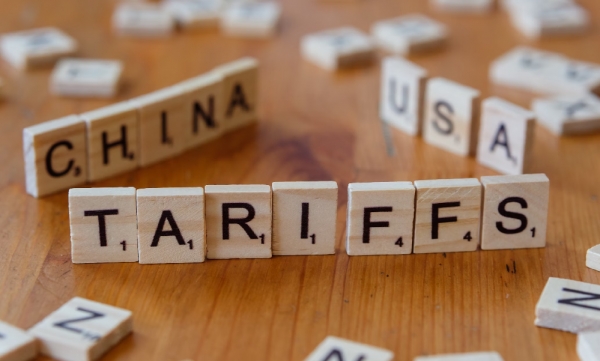The escalating tariff regime between the United States and China continues to cast long shadows across global trade routes—and New Zealand is far from immune. With the U.S. implementing new or increased tariffs on Chinese goods, the indirect consequences are set to impact a range of New Zealand industries, raising the risk of insolvency in already vulnerable sectors.
Indirect Shockwaves: How U.S.-China Tariffs Affect NZ
New Zealands economy is deeply interconnected with both the U.S. and China. The tariff regime creates cost distortions, re-routes global trade flows, and introduces volatility to commodity markets. These dynamics are especially relevant for New Zealand exporters, importers, and manufacturers.
Industries most at risk include:
- Exporters of Raw Materials & Agricultural Commodities: A slowdown in China’s manufacturing demand, due to reduced exports to the U.S. and not quickly finding substitute markets, could lead to lower demand for New Zealand’s raw materials and agricultural inputs (e.g., dairy powder, meat, timber).
- Manufacturing and Import-Reliant Businesses: If China diverts its surplus goods to other markets, including NZ, local manufacturers could face increased competition and price pressures, eroding margins.
- Technology & Electronics Retailers: Tariffs on Chinese tech inputs raise global prices, and these may be passed down to NZ consumers and businesses, impacting demand.
- Logistics and Freight Providers: Any disruption in shipping volumes or changes in global supply chains may reduce volumes and hurt profitability in logistics sectors.
The Inflation-Recession Tug of War
Higher tariffs often mean higher input costs, which can trigger inflation globally. If inflationary pressures from imported goods or commodities rise in New Zealand, the Reserve Bank may be forced to maintain or even increase interest rates. This puts pressure on households and businesses already struggling with tight margins and high borrowing costs.
Insolvency Impacts: Who’s Most Vulnerable?
When inflation rises and sales slow, insolvency risk increases—especially for businesses already operating on thin margins or carrying substantial debt.
SMEs in retail, hospitality, and manufacturing may be the first to feel the squeeze, particularly those with supply chains linked to China or the U.S.
Construction firms, which rely on imported building materials (some from China), may face higher costs and project delays—triggering disputes, cashflow problems, and possible liquidation.
Startups and high-growth companies reliant on foreign investment or global supply chains may find it harder to secure funding or pivot quickly.
A Silver Lining: Opportunities for Local Producers
Not all outcomes are negative. Some NZ businesses may benefit from trade redirection:
- Agricultural exporters could fill supply gaps in other markets left by Chinese or U.S. producers locked out of their traditional trade lanes.
- Local manufacturers may benefit from consumers and companies seeking alternatives to Chinese goods, encouraging import substitution.
- Tech and services firms focused on non-China/U.S. markets could become more attractive to investors seeking diversification.
What Should Directors Do?
In uncertain global environments, directors must remain vigilant. Here’s what to focus on:
* Monitor Global Trade Developments: Stay informed on how global tariffs and trade shifts may impact your inputs, customers, or competitors.
* Stress-Test Your Business: Model various financial scenarios, including increased costs, slower revenue, and currency fluctuations.
* Review Supply Chains: Look for alternative suppliers or markets to reduce over-reliance on China or the U.S.
* Preserve Cashflow: Focus on working capital management, renegotiating supplier terms, and reducing non-essential expenditure.
* Document Decisions: Maintain clear records of financial decisions to demonstrate compliance with director duties under the Companies Act 1993.
* Seek Advice Early: If cashflow is tightening or solvency is uncertain, consult your accountant or a licensed insolvency practitioner before it's too late.
When Is Enough Enough?
Directors have a legal duty not to allow a company to trade while insolvent. Warning signs include:
- Mounting creditor pressure or overdue tax obligations
- Repeated reliance on short-term borrowing
- Negative working capital or inability to meet payroll
- Loss of key contracts or significant cost increases
If a business is in serious distress and these signs are present, directors must act decisively. Waiting too long can increase personal liability.
Proactive strategy, financial discipline, and early intervention remain the best defence against becoming collateral damage in the next wave of insolvencies.
Need help assessing your business’s position? Contact McDonald Vague for confidential advice.

